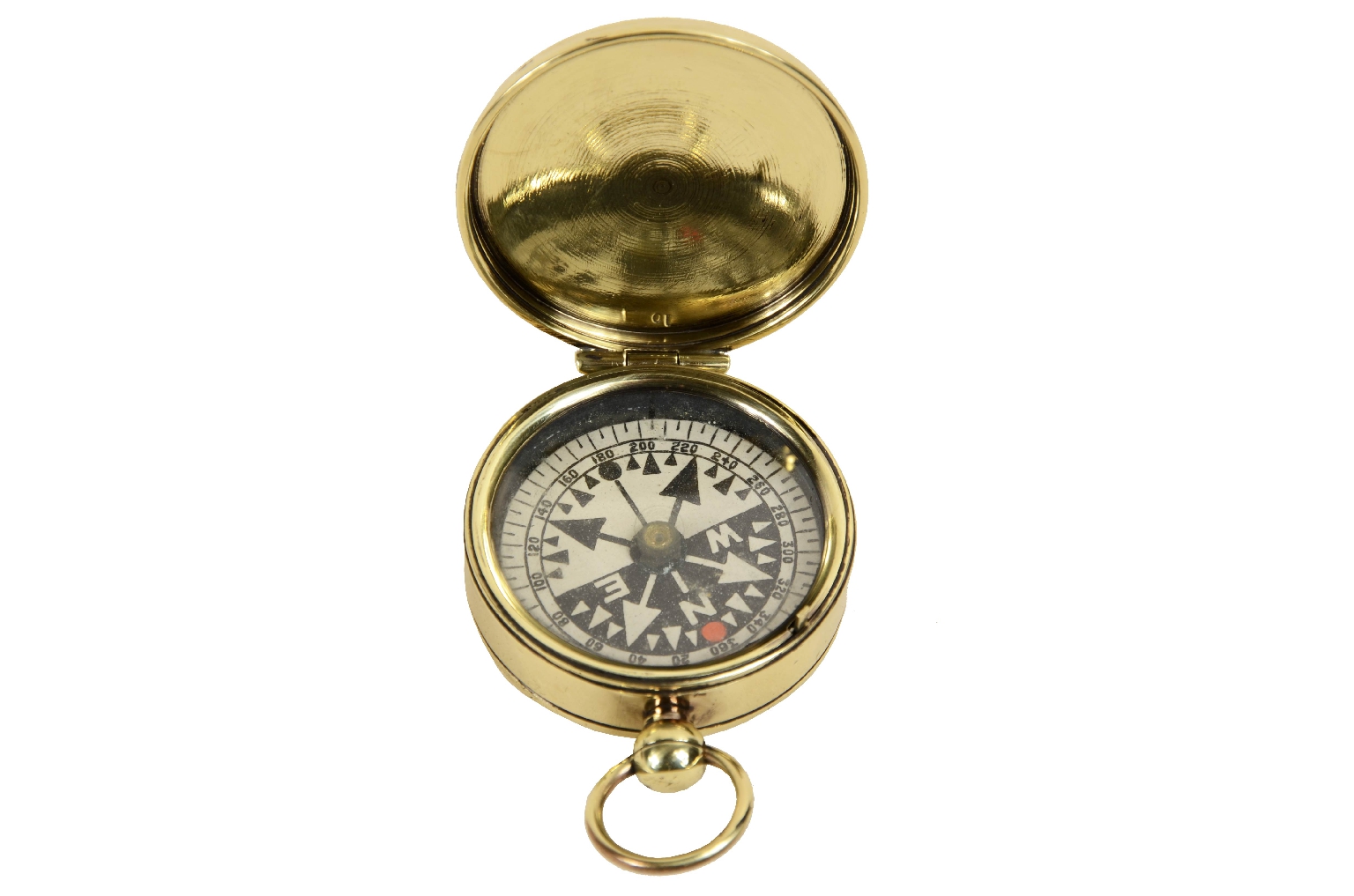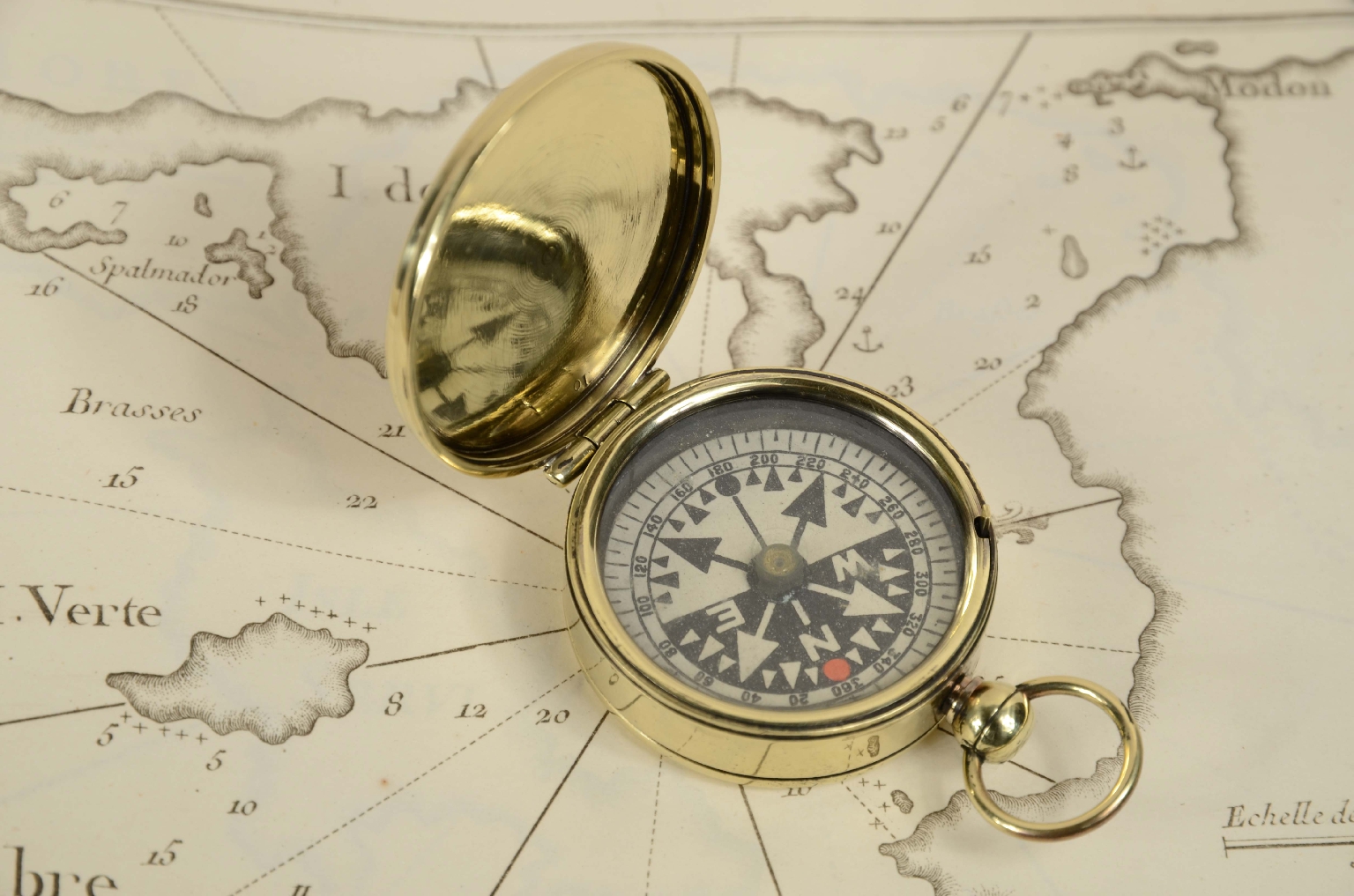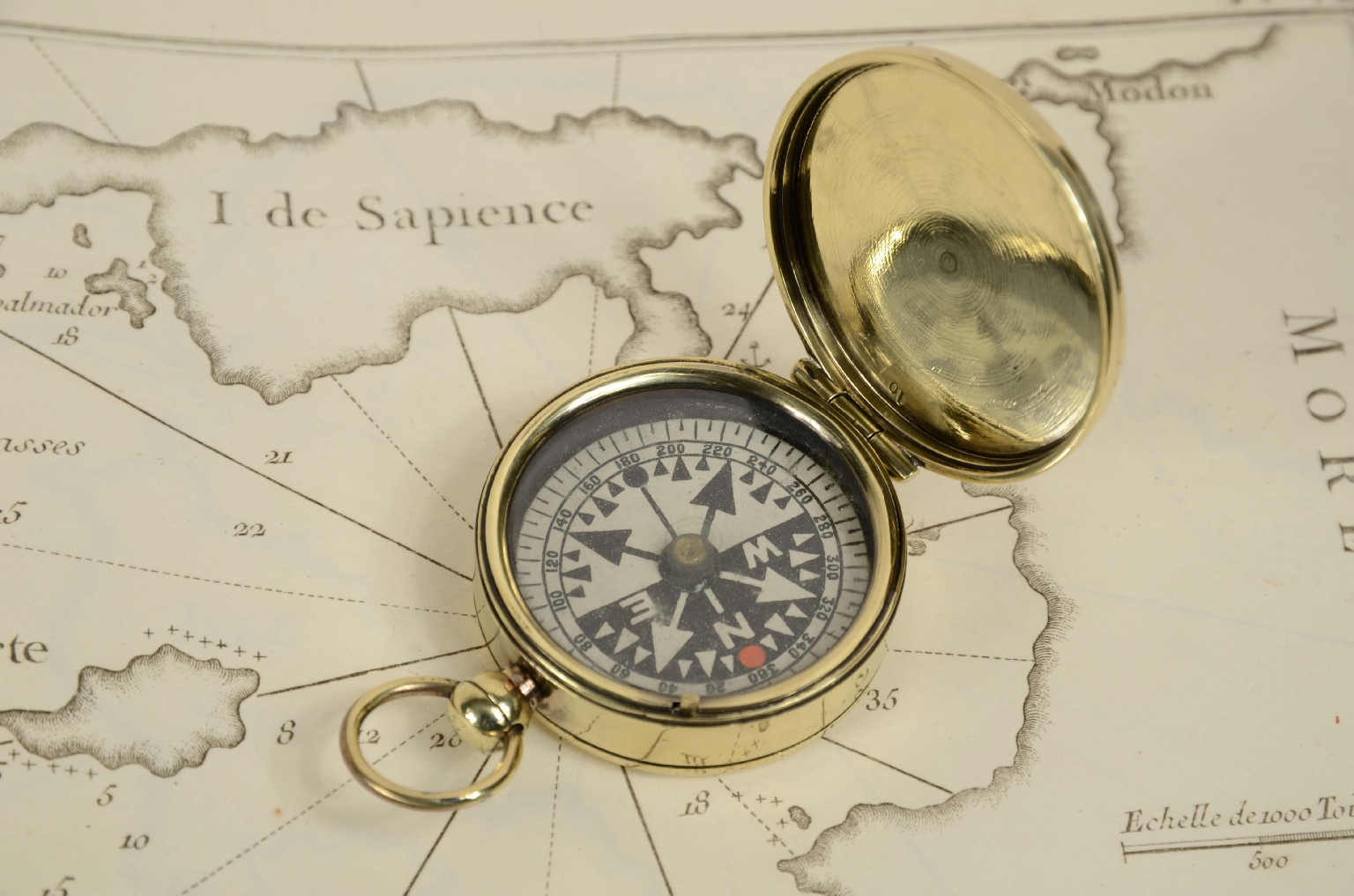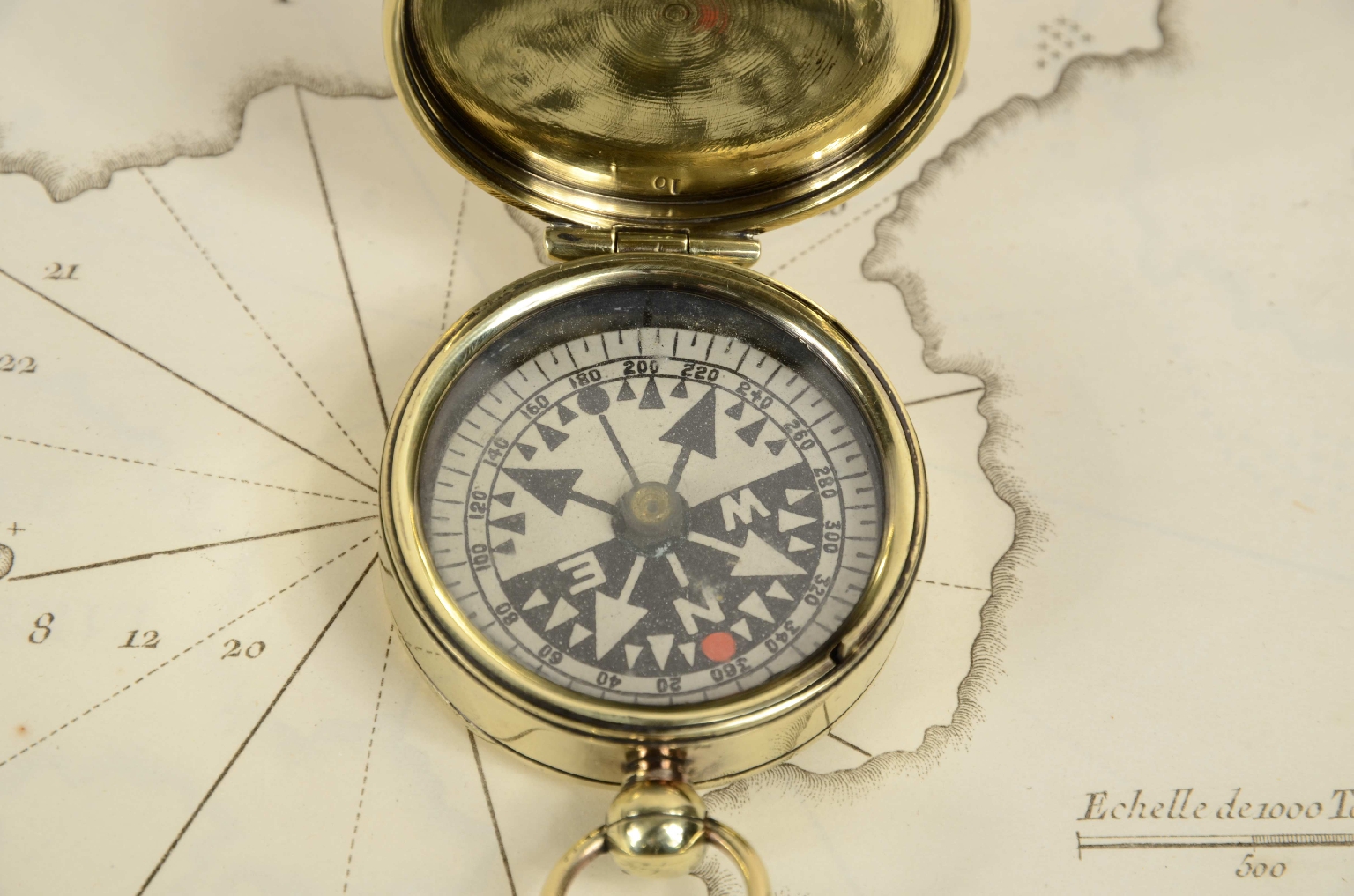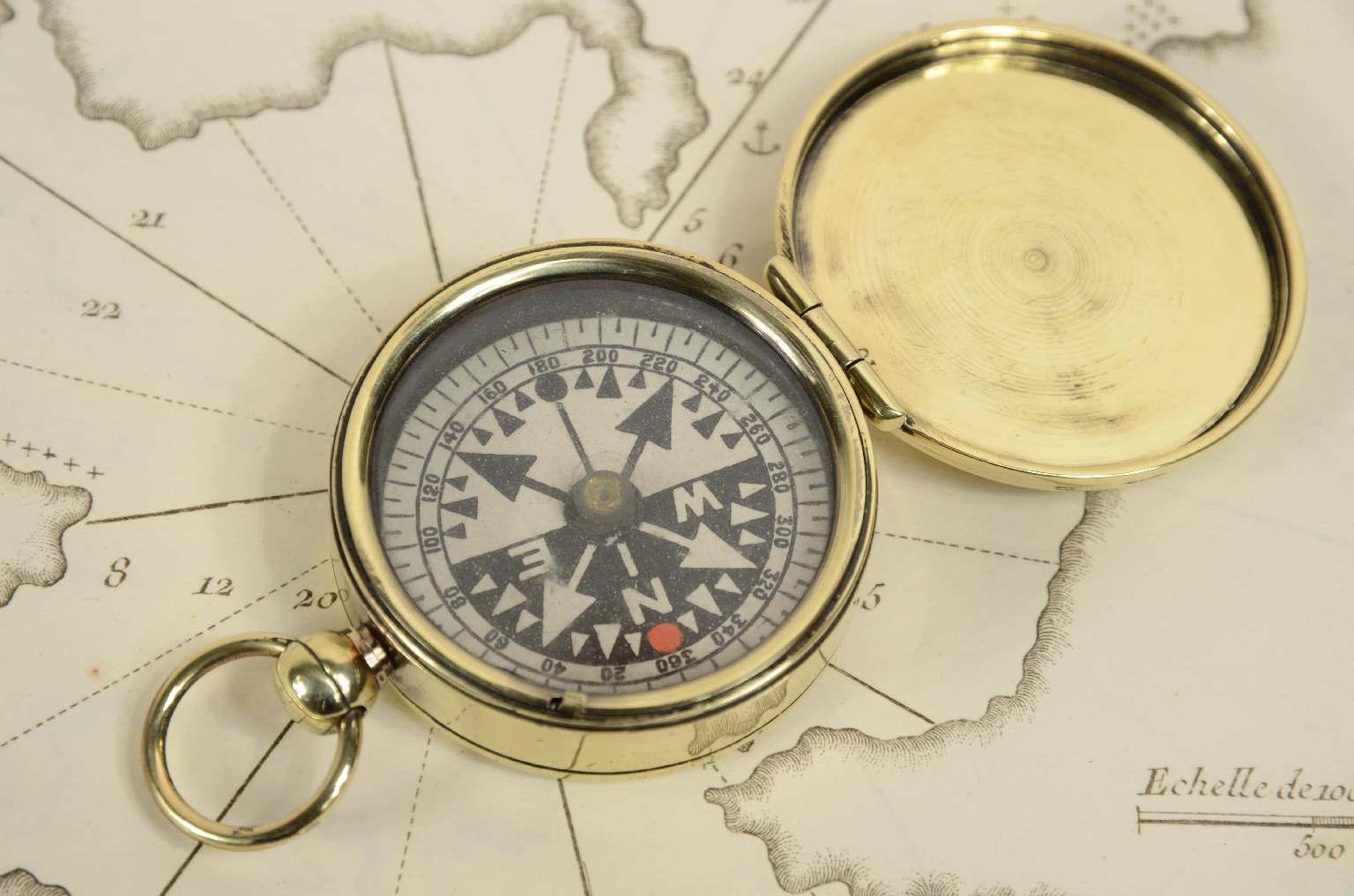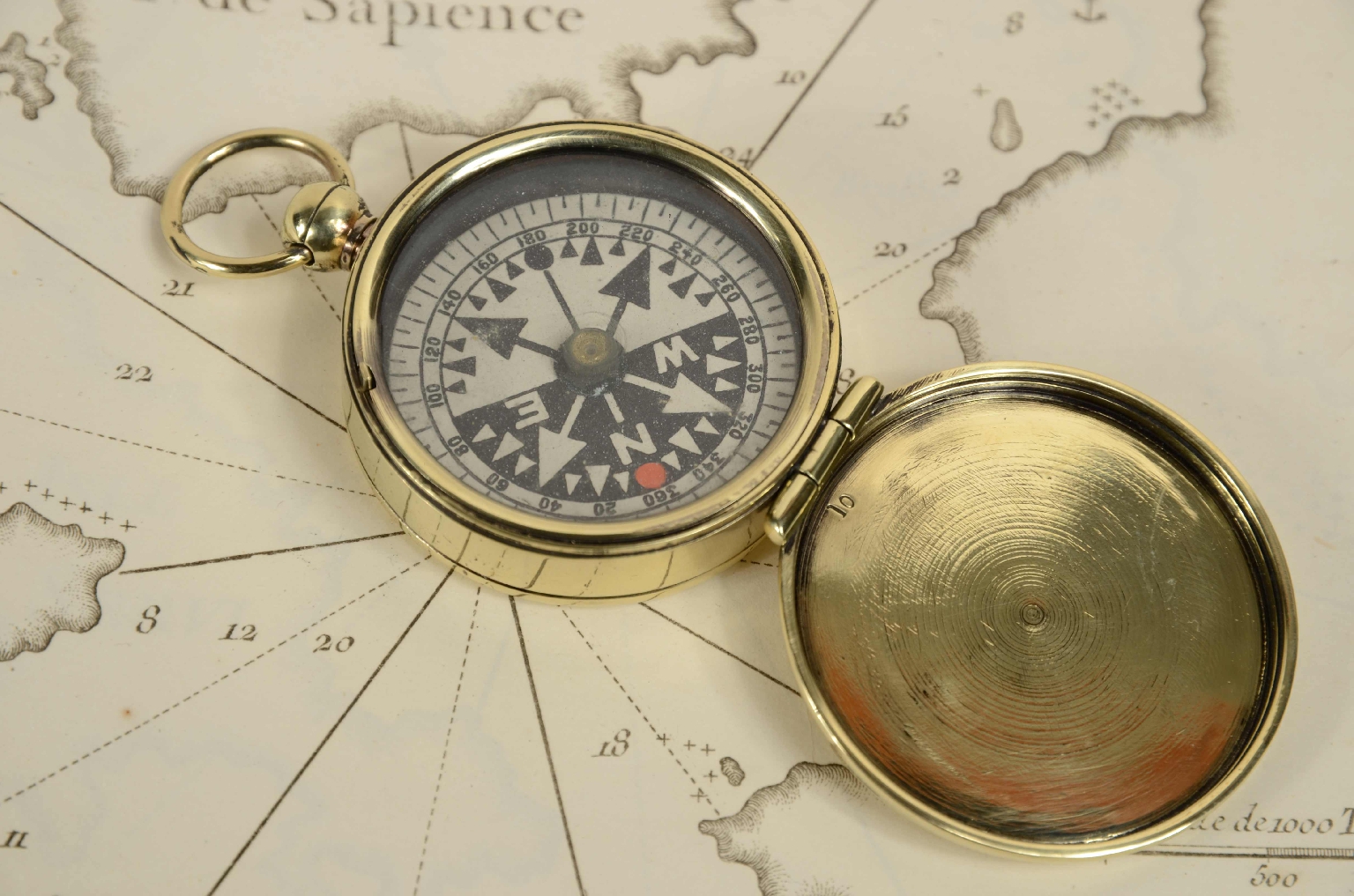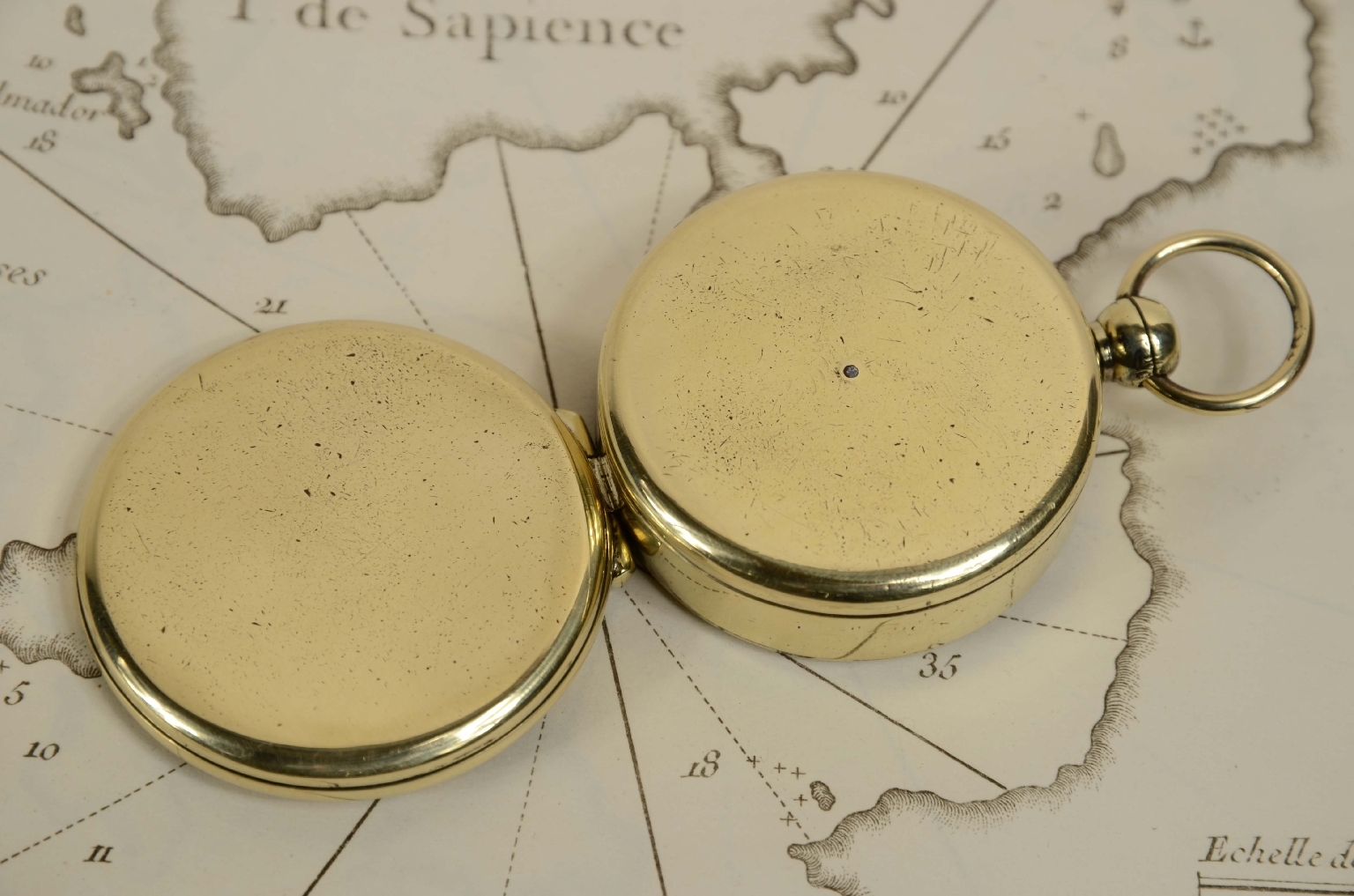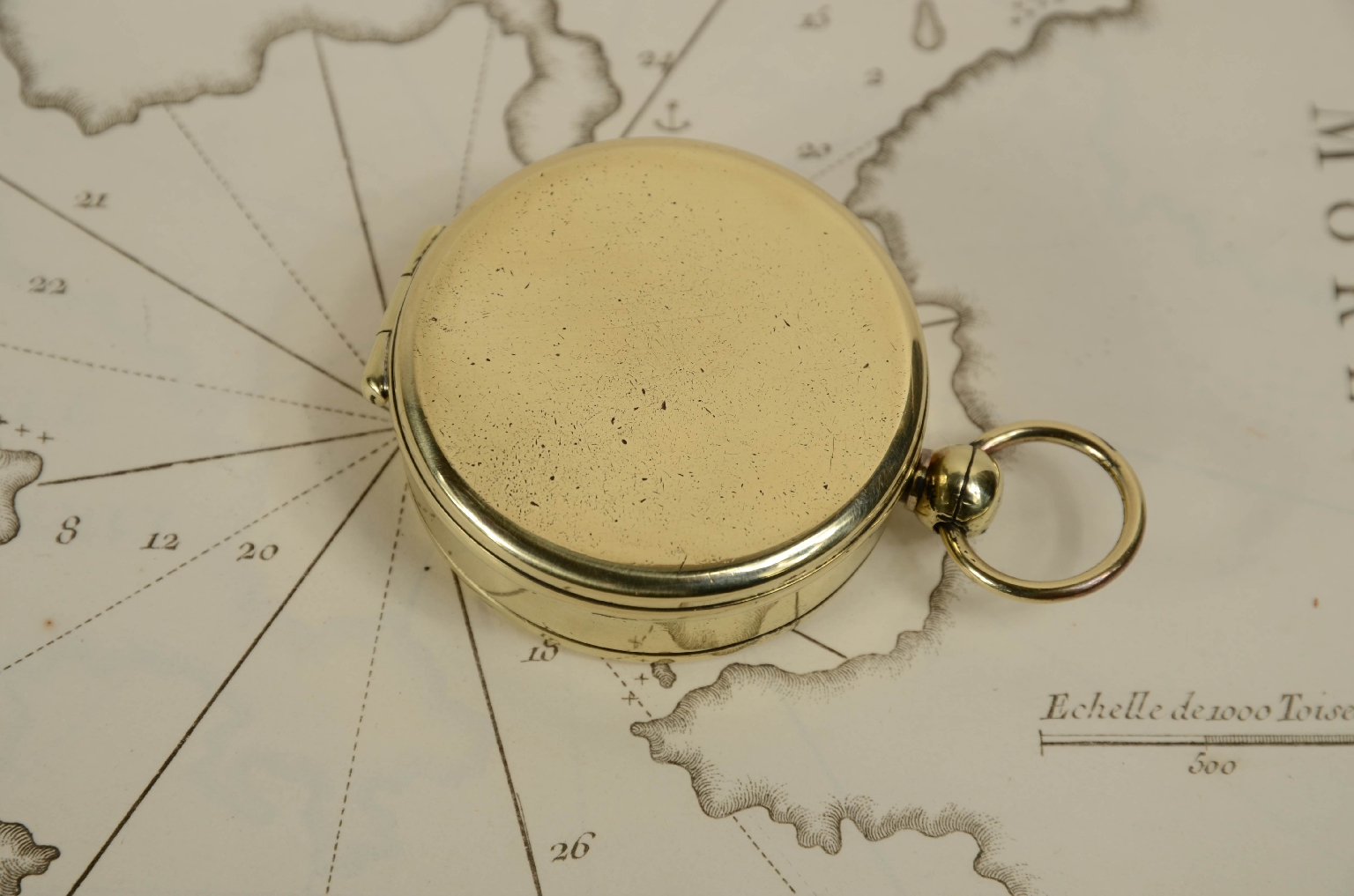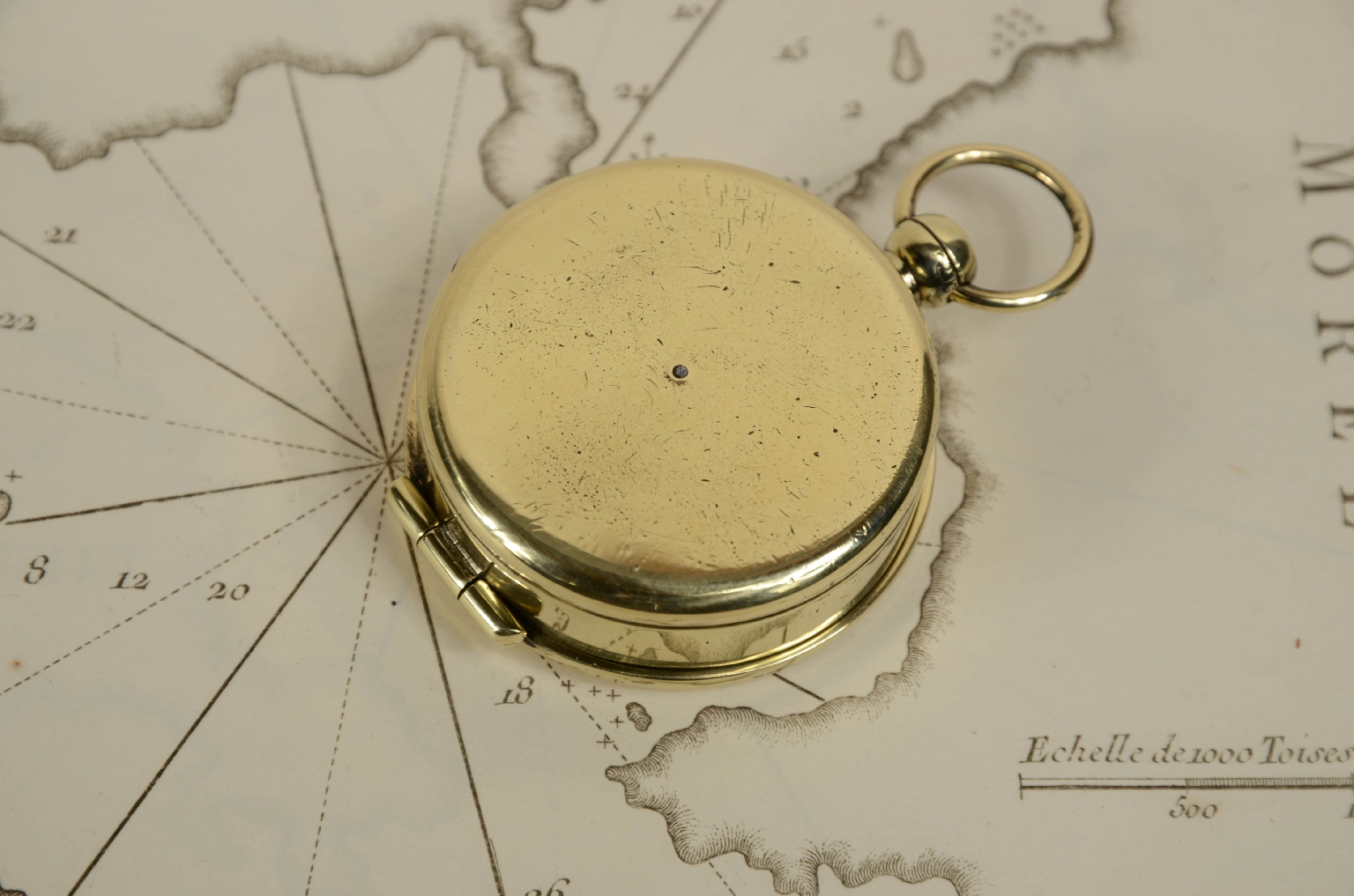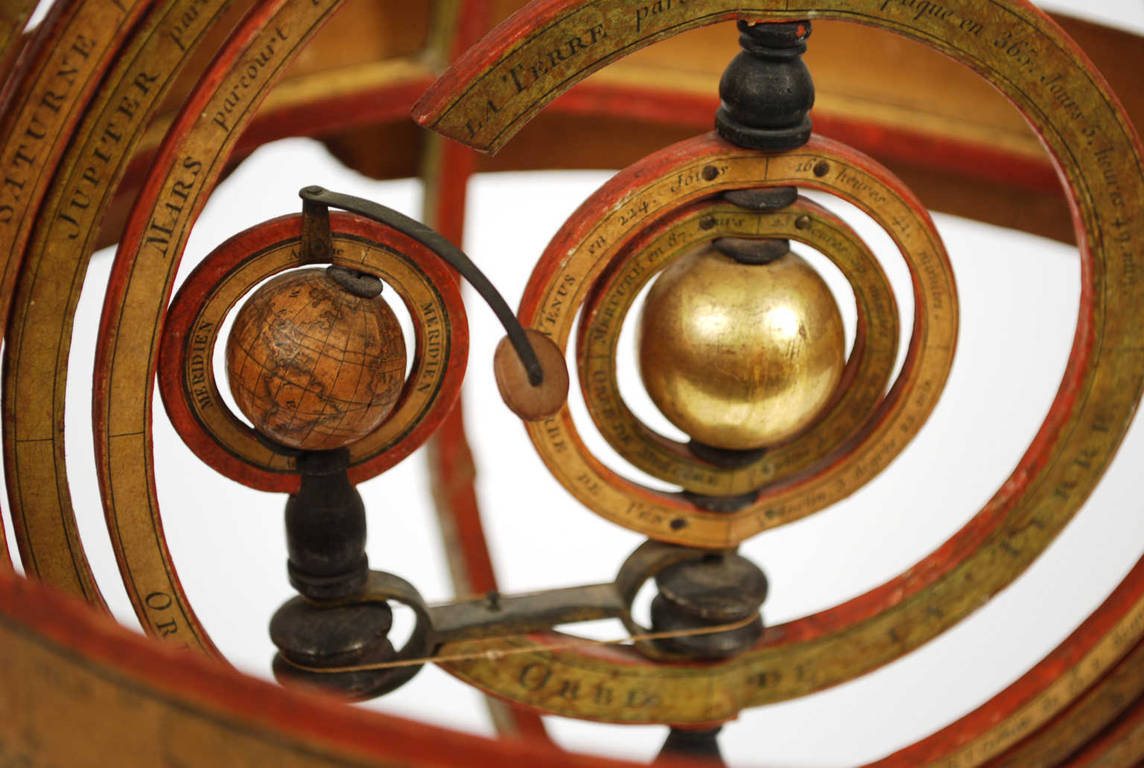antik.it/Antique-compasses/7765-Pocket-Compass/
1701699793Code 7765 Pocket CompassBrass nautical pocket compass in the shape of an onion clock. The compass is equipped with a lid and a ring for the chain. Six-wind rose complete with protractor circle for calculating horizontal angles. English manufacture from the 1920s. Good condition, fully functional. Diameter 4.7 cm – 1.8 inches, thickness 1.8 cm – 0.7 inches.
The Greeks and Romans were still unaware of the possibility of exploiting magnetic fields to orient themselves, while it seems that this possibility was already known to the Chinese in some way: around 2600 BC. Emperor Hoang-Ti managed to defeat Prince Tchi-Yeou in battle thanks to a "magical chariot", the See-Nan (south-indicating chariot). The emperor, thanks to this device, identified the enemy's escape route, even though the enemy had hidden it with a blanket of smoke: a human-shaped wooden silhouette was fixed on the chariot which rotated on itself and which, with the outstretched arm always pointed south (indicating the south obviously also indicated the north at the same time, but the south was considered by the Chinese to be the most important cardinal point.
The first hints of the use in Europe of instruments that exploited magnetic force to orient oneself in navigation date back to the end of the 12th century, above all thanks to the knowledge brought by Arab merchants and navigators: we find hints of it in Alexander Neckam's work “De nominibus utensilum” and in the works of Guyot de Provins in which the magnet is defined as “the sailor's companion”. Even in the inventory of a Sicilian ship from the 13th century, the San Nicolò, reference is made to the presence on board of a magnet and a "wooden compass".
FAQ
Do you provide an authenticity certificate/expertise?
Of course! The legislative decree n. 42/2004 stipulates that who sells works of art or historical and archaeological items has the obligation to deliver to the purchaser the documents attesting to the authenticity of the object, or at least to submit the documents relating to the probable attribution and origin. Antik Arte & Scienza provides an expertise (as warranty) that contains a description, period and assignment or the author, if known, of the item.
How can I pay?
Secure payments by PayPal, credit card or bank transfer.
What are the shipping terms and the delivery schedule?
Shipping by DHL or UPS is free (but if we are shipping to a country non-EU remember that any taxes and customs duties are on your expense), and items will be sent just after receiving of payment.
Italy: delivering on the average in 24 h.
Europe: delivering on the average in 2/3 weekdays.
Other countries: delivering on the average in 5 weekdays; custom duties charged to the buyer.
Is shipping insured?
Of course! Free insurance by Lloyd's London that covers almost all destinations.
If I change my mind, can I return the item?
Of course! (see our general terms for more information).
e-Shop
Antique compasses
Code 7765 Pocket Compass
Antik Arte & Scienza sas di Daniela Giorgi - via S. Giovanni sul Muro 10 20121 Milan (MI) Italy - +39 0286461448 - info@antik.it - www.antik.it - Monday-Saturday: 10am-7pm


